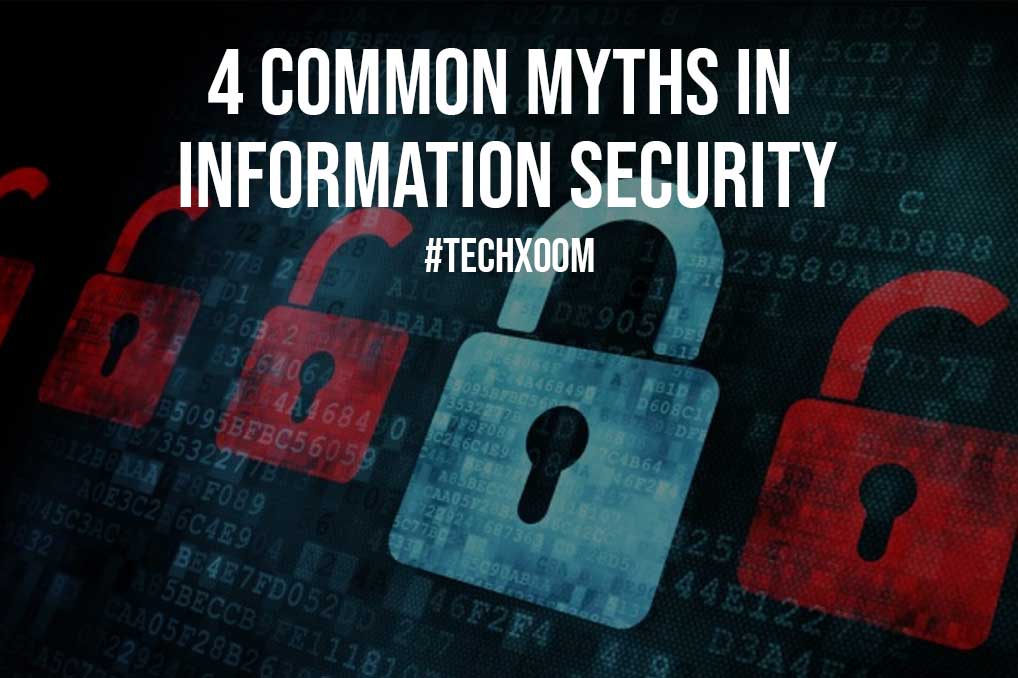Any professional field becomes infested with myths over time. They are everywhere: in historical summaries, on the Internet, and in ordinary conversations between people.
What is a myth? According to the dictionary definition, “it’s an unreliable story, a fiction.” The terminology speaks for itself. As practice shows, myths are not always true, often they are just fiction, inspired by folk gossip. They don’t skirt the sphere of information security.

Let’s take a look at the most common myths in information security.
Information Security Is About IT
Many people don’t distinguish between IT and information security, believing that the latter is a kind of the former. It is commonly believed that information security is limited to the installation of specialized technical equipment or software in the company. But is it really so?
Unfortunately, in today’s reality, many companies really neglect to create an information security department, shifting its responsibilities to the IT department employees, or replacing human labor with equipment. But this is wrong. Risk reduction depends not only on the use of highly professional equipment but also on its proper handling.
According to the Gartner report, 95% of all successful attacks could have been prevented if the defenses already in place had been properly configured. If you don’t know how to handle the equipment, it can become a regular piece of hardware or just another application on your computer.
IT specialists don’t have the necessary knowledge and experience in this kind of work; they test services, write code, and develop unique solutions, but they don’t analyze risks or set up processes to protect against leaks. This is done by employees who are qualified in information security.
Also Read: Advantages of Bookmakers – How Do They Make Money?
Hackers Don’t Attack Small Companies
Most small companies don’t think they are of interest to attackers. After all, they are not as popular as a world-famous company with sports odds or Amazon, there is little sensitive data inside their systems, so what is there to steal?
That’s a misconception. Today’s hacking attacks are fully automated, with bots looking for vulnerabilities on the Internet and hitting any targets they can find.
They don’t care if the company is big or small, it’s just a matter of chance. And it’s not uncommon for that to be the case for small businesses or startups. On top of that, it’s commonly believed that small companies don’t pay enough attention to data protection, making them easy targets.
Indeed, if they are not careful, customers’ banking information, passwords, logins, partners’ and employees’ personal data may become the property of hackers at any time.
The only difference is that in the case of a leak, a large company has a better chance to “stay afloat” than a small one. The latter may not be able to withstand considerable financial losses and shut down.
Apart from small companies, normal individuals are also at risk of getting attacked by cybercriminals. The lesser the levels of security or cybersecurity infrastructure in place, the more are the chances of getting targeted. Make sure that even when you are using downloading or torrenting platforms like proxy-rarbg.org, you are using a VPN or at least a secure browser.
Information Security Is Expensive
This is probably the most common misconception. Many companies don’t even think about security measures, hiding behind the lack of money.
Let’s not hide the fact that information security is not always cheap. But are these costs comparable to the ones you run the risk of in case of a leak?
Some technical and administrative information security measures come at no cost. They include network segmentation, access lists, logging of all events, and more.
Undoubtedly, money should be managed properly and, returning to the first myth, delegated to specially trained people. After all, even with a lot of money spent on information security, the level of protection can remain extremely low if the finances are handled and allocated incorrectly.
Also Read: How to jail break Amazon FireStick
Ensure Information Security = Buy Equipment
Often companies think that it is enough to buy good equipment once to ensure good protection forever. But information security is not a one-time action, but a regular, complex process.
Criminals are improving their methods all the time, which means that it’s important to be on the agenda, assess possible risks, and react to threats in time. In this case, it isn’t enough to set a strong password or update antivirus, it’s essential to carry out preventive work in all directions.
For example, it’s worth introducing educational training in the team for improving information security literacy or organizing pentests to check the system’s operation. Any protection starts with building company processes, and it’s absolutely free.


